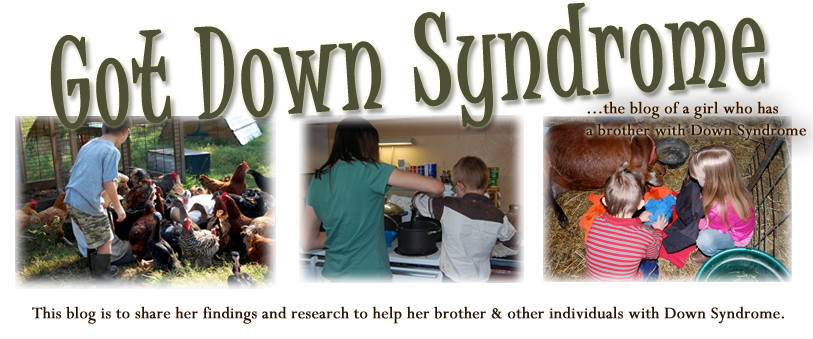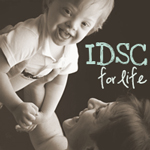Here's yet more research on ways to prenatally detect Down syndrome. Just to add to the 92%+ abortion rate of prenatally diagnosed babies with Down syndrome.
Completely disgusting!
Advancements in medicine have been amazing, but at some point the science seems to have usurped the need for human care. A
health science degree has become synonymous with cold, calculating reason as opposed to a common part of the human existence. With 1 in 691 babies being born with
Down Syndrome in the US every year, it is important that detection no longer be the only goal for health science professionals. In devoting more study to those who live with Down Syndrome, the extra 21st chromosome could have a cure not solely be the cause for concern.
Ya know, I'd be all for prenatal testing if it was there strictly to help the unborn child. For the mother to be able to take supplements to be able to help that baby be born as healthy as possible. Because, the babies whose mothers do keep them when diagnosed prenatally, and take prenatal TNI supplements, are born with fewer heart defects & better muscle tone. So, they are already on a better start with better health.
But, no, of course, the medical research isn't going for that.
Sigh.
NEW YORK — Scientists in Europe report they were able to diagnose Down syndrome prenatally by giving a simple blood test to pregnant women, an approach that might one day help them avoid the more extensive procedure used now to detect the condition.
The preliminary report published online Sunday in the journal Nature Medicine is the latest of several recent studies that suggest scientists can spot Down syndrome through fetal DNA that has been shed into the mother's bloodstream.
Down syndrome, which results in cognitive delays, is caused by having an extra copy of a particular chromosome. Currently, pregnant women get blood tests and ultrasound to find out if the fetus is at risk for Down syndrome. For a firm diagnosis, doctors take a sample of amniotic fluid or the placenta.
Those sampling procedures involve a small risk of miscarriage. A reliable diagnostic blood test also could give an answer earlier than the standard tests.
Several research teams have published studies suggesting that analyzing the mother's blood can detect Down syndrome in a fetus. There's no commercial test available yet, but at least one company hopes to introduce one in the U.S. within about a year.
In the latest report, scientists in Cyprus, Greece and England said that in a blind test, they correctly identified 14 Down syndrome cases and 26 normal fetuses.
They said a bigger study is needed to confirm the usefulness of their approach.





























